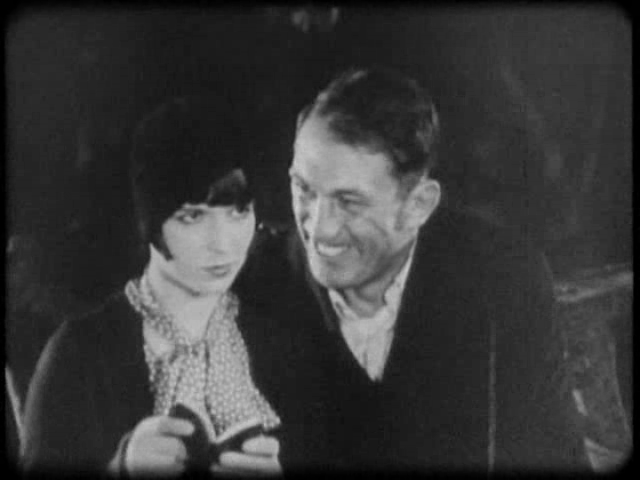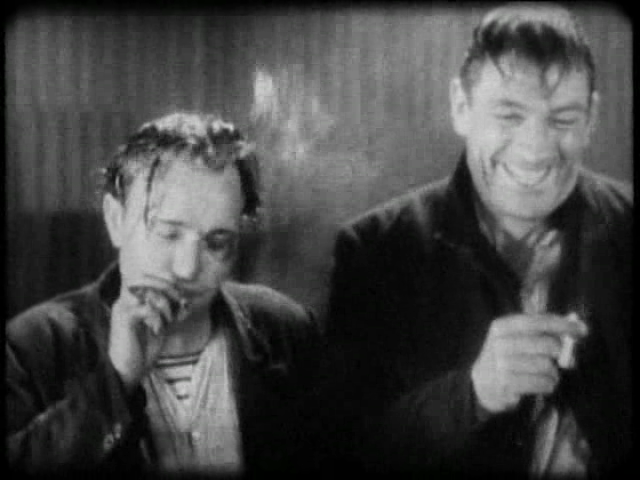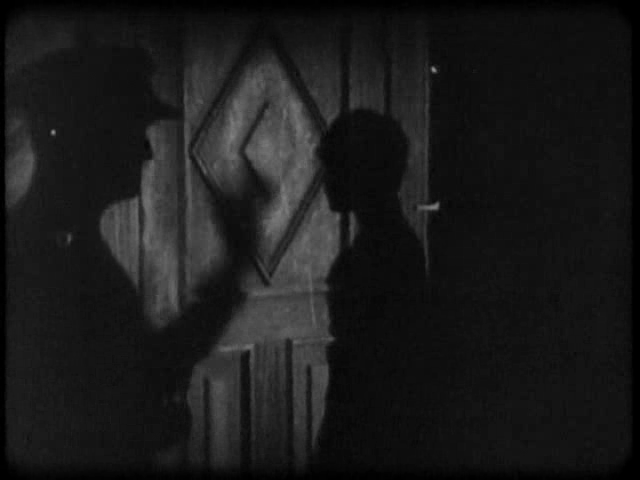|
Genres, Themes, Actors, and Directors:
- Comedy
- Friendship
- Gold Diggers
- Howard Hawks Films
- Louise Brooks Films
- Rivalry
- Sailors
- Silent Films
- Victor McLaglen Films
Review:
Howard Hawks’ silent-era buddy comedy is an enjoyable harbinger of his later, similarly-themed films. It’s swiftly paced, nicely acted by McLaglen and Armstrong (who reminds me of a slightly more mature Heath Ledger), and consistently amusing. The clever script showcases Spike and Salami’s distinctly macho friendship, which is predicated on fist-fights and rivalry, yet grounded with oddly intimate touches (in a running gag, Spike pulls Salami’s disjointed finger back into shape after every brawl he’s in). Meanwhile, Malcolm Stuart Boylan’s intertitles bring the briny patois of these globetrotting sailors to life: “You’re not in love. You’re just broke out all over with monkey-bites”, says Armstrong to McLaglen. Given its status as a pre-Code film, it’s made refreshingly clear that Spike and Salami are after sexual conquests; to that end, some of the most amusing moments in the film come early one, as we watch Spike looking up port-side women in his “little black book”, trying to find someone who’s still single and childless, and who hasn’t yet been “tainted” by his then-unknown rival. Quickly, however, Spike and Salami’s friendship takes a central role in the film, with the arrival of Brooks’ seductive femme fatale functioning primarily as a hitch in their lifelong commitment to one another. While her role is relatively small, Brooks is as luminous here as ever; it’s clear why G.W. Pabst hired her shortly thereafter to star in his Pandora’s Box (1929) and Diary of a Lost Girl (1929).
Redeeming Qualities and Moments:
- Victor McLaglen as Spike

- Robert Armstrong as Salami

- Louise Brooks as Marie

- A humorous portrait of rivalrous friendship

- Atmospheric cinematography

- Enjoyably slangy intertitles: “When I catch that snooping sea-snipe, I’ll put my trade-mark on his jaw!”
Must See?
Yes, as a most enjoyable early film by Hawks.
Categories
Links:
|
One thought on “Girl in Every Port, A (1928)”
First viewing. While I can appreciate the position of the assessment, I still find this too much of a snooze to recommend to all ffs.
The average ff will not associate director Hawks with silent films, it’s true, and they may find this of mild interest for that reason – but the mileage he eventually got out of the personal themes he presents here may make viewing this somewhat irrelevant.
Brooks is indeed a striking film presence but here (where she arrives midway) she isn’t given all that much to do, really, except play a standard vamp.
The quote that opens the assessment – a significant one – really does underscore the view of Hawks’ work as having something of a homosexual undertone. What does that line mean, really, other than something oddly misogynistic and/or that a woman’s purpose is little more than sexual necessity? (The film’s closing quote solidifies the sentiment – when McLaglen says to Armstrong in a mood a tad more than just chummy: “There ain’t nothing ever going to come between us again, is there?”)